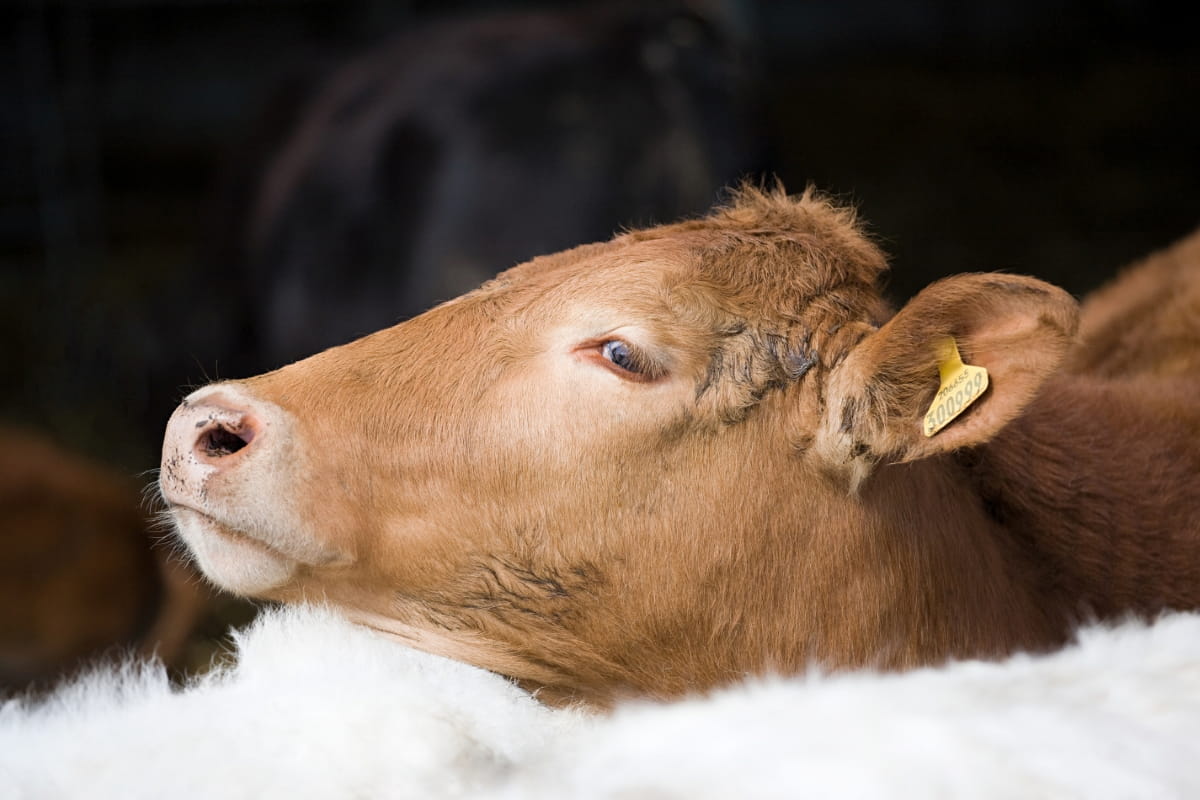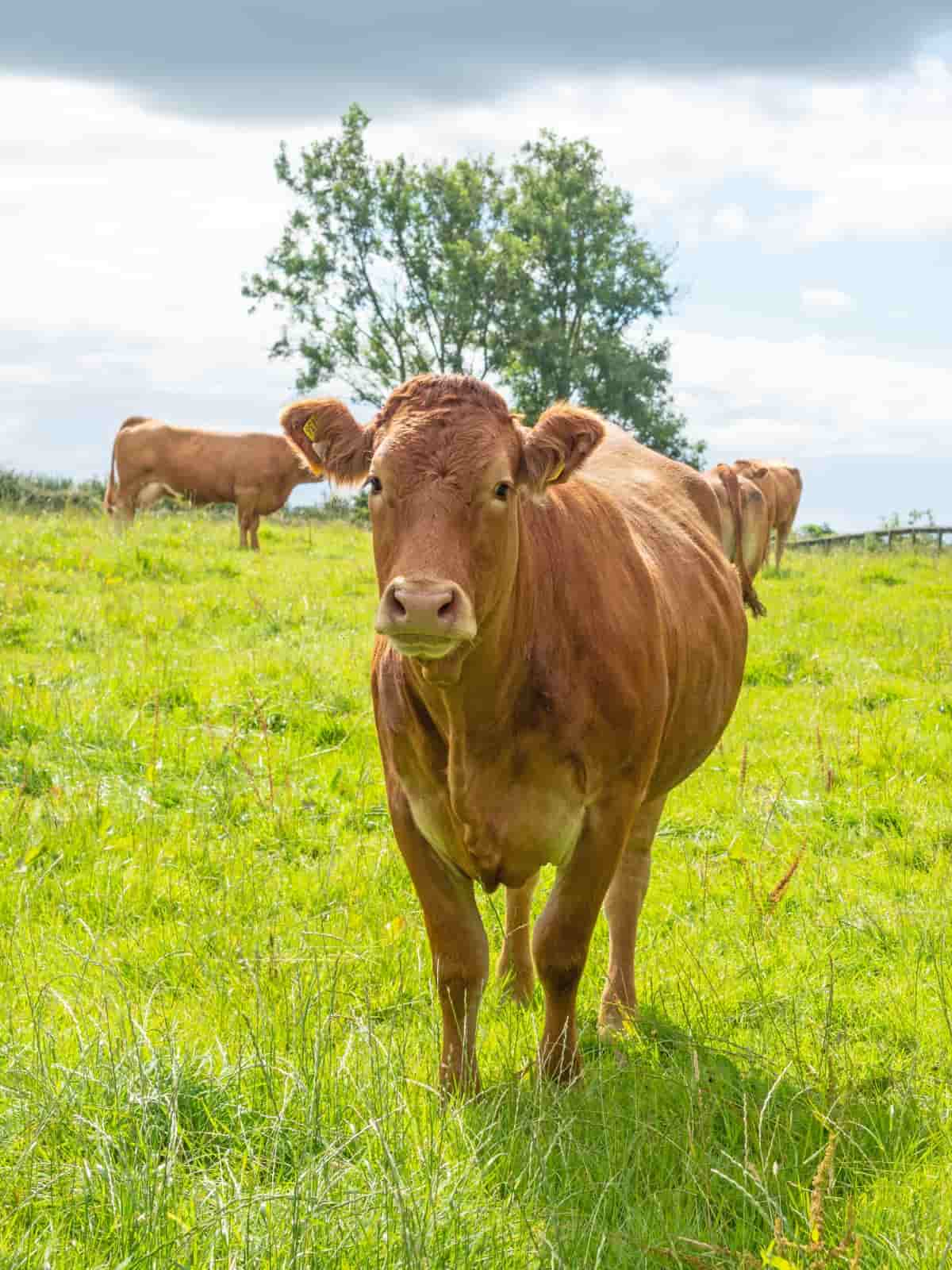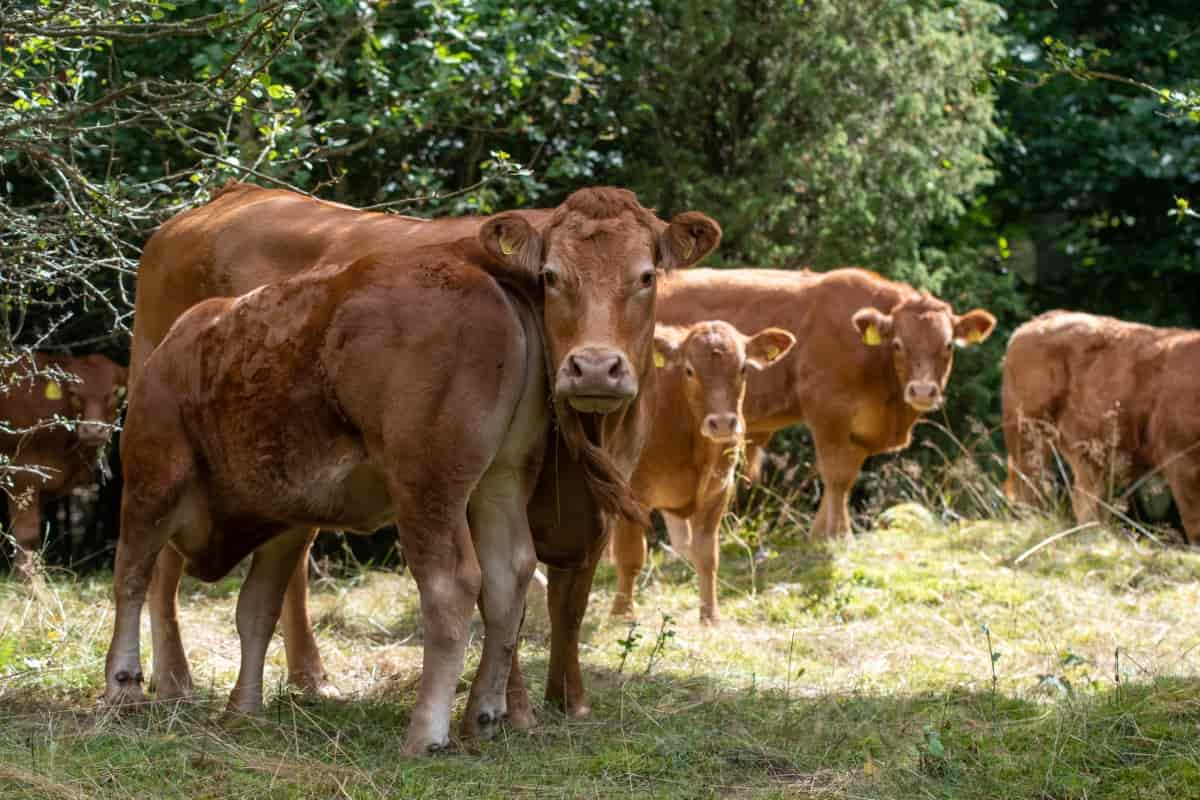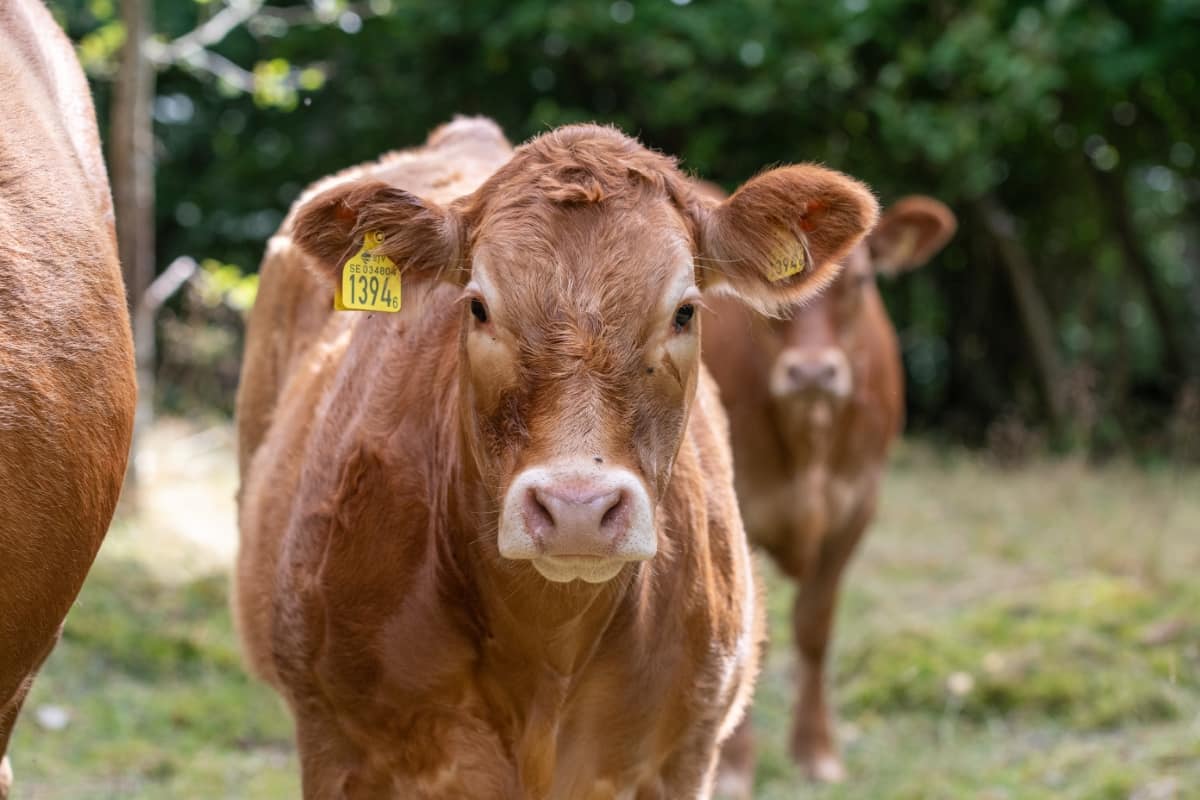Raising South Devon cattle can be a rewarding and profitable endeavor for farmers. These hardy and adaptable animals have a long history of excellence in meat production, making them the best choice for anyone looking to enter the beef industry. With their gentle temperament, ease of calving, and exceptional maternal instincts, South Devons are also well-suited for small-scale farming operations. Their ability to thrive in various climates and graze on different types of vegetation further adds to their appeal as a versatile breed.

How to Raise South Devon Cattle
History and Origin of the Breed
The South Devon cattle breed, known for their exceptional size and strength, has a rich history that dates back centuries. Originating in the southwestern region of England, these majestic animals were developed by farmers who needed robust livestock capable of thriving in challenging conditions.
Key Characteristics and Breed Profile
South Devon cattle are renowned for their impressive size and strength. One of the key characteristics of the South Devon cattle breed is its deep chest and broad back, giving it a sturdy and robust appearance. Their coat is typically a rich red color, but they can also be found in shades of dark red or even black. South Devons have short horns that curve slightly upwards, adding to their distinctive look.
Not only are these cattle visually striking, but they also possess excellent maternal instincts. They are known for their exceptional fertility rates and ease of calving. This makes them an ideal choice for farmers looking to maintain a healthy herd with minimal complications during the birthing process.
Selecting Your South Devon Herd
Criteria for Choosing Breeding Stock
When it comes to selecting your South Devon herd, there are several important criteria to consider. First and foremost, you want to choose a breeding stock that embodies the key characteristics of the breed – robustness, adaptability, and excellent maternal instincts. Look for animals with strong conformation and good muscling.
Understanding Bloodlines and Genetics
Understanding bloodlines and genetics is crucial in maintaining the integrity of your herd. Take the time to research pedigrees and learn about the genetic traits that are desirable in South Devon cattle. Look for animals with proven performance records and genetic diversity to ensure a healthy and thriving herd. Another important factor to consider is temperament.
While South Devons are known for their docile nature, it’s essential to select animals that have a calm disposition, making handling easier for both you and your team. Health history should also be considered when choosing breeding stock. Ensure that potential additions to your herd have been properly vaccinated, tested negative for common diseases, and come from reputable sources with a solid track record of animal health management.
Feeding and Nutrition
Nutritional Requirements for Different Life Stages
Each stage has specific nutritional requirements that must be met to ensure optimal growth, development, and reproductive performance. During the early stages of life, calves rely on their mother’s milk for nourishment. It is important to provide adequate nutrition to the lactating cows so they can produce high-quality milk for their offspring.
As calves grow older and transition from milk to solid feed, it is essential to introduce them gradually to a well-balanced diet consisting of good quality pasture or hay, along with supplementary feeding if necessary. The nutritional requirements of South Devon cattle vary depending on factors like age, weight gain targets, and environmental conditions.
Pasture Management and Supplementary Feeding
Pasture management for South Devon cattle plays a key role in ensuring an ample supply of nutritious forage throughout the year. Implementing rotational grazing systems allows for optimal utilization of pasture resources while promoting regrowth and preventing overgrazing. Supplementary feeding may be necessary during periods when pasture availability or quality is limited. This could include providing additional sources of protein through supplements like grain or pellets.
In case you missed it: Mini Highland Cattle: Breeding, Temperament, Grooming, Diet, Care, and Training

Housing and Farm Infrastructure
Shelter Requirements and Layout
When it comes to Raising South Devon cattle for beef, providing proper housing and farm infrastructure is crucial for their well-being. These sturdy animals need a shelter that protects them from harsh weather conditions. The layout of your farm plays a significant role in ensuring the smooth operation of daily tasks. It’s essential to design an efficient layout that allows easy access to all areas of your farm, including feeding areas, water sources, and handling facilities.
Handling Facilities and Safety Considerations
They are indispensable when it comes to managing your South Devon herd effectively. Well-designed handling facilities make tasks like vaccinations, hoof trimming, or pregnancy checks much easier for both you and the cattle. Safety considerations should always be at the forefront when designing your housing and infrastructure. Providing non-slip flooring will also reduce the risk of injuries.
Health Management
Routine Health Checks and Preventative Care
Keeping your South Devon cattle healthy is essential for their overall well-being and productivity. When it comes to Health care for South Devon cattle, routine health checks are a crucial part of preventative care on the farm. Regularly inspecting your herd allows you to identify any potential issues early on and take appropriate action.
During health checks, it’s important to assess body condition, monitor weight gain or loss, check for signs of illness or injury, and ensure proper nutrition. This proactive approach helps prevent diseases from spreading within the herd.
Common Health Issues and Treatment Strategies
Challenges in raising South Devon cattle include respiratory infections, parasites such as worms or ticks, foot problems like lameness, and reproductive disorders. To address these concerns effectively, consult with a veterinarian who specializes in cattle health. Treatment strategies may involve administering appropriate medications or vaccines as recommended by your vet. Additionally, maintaining clean water sources and properly managing pastures can help prevent the spread of parasites and reduce the risk of disease transmission.
Implementing good biosecurity measures is also important in preventing disease outbreaks on your farm. This includes limiting contact with other herds, quarantining new animals before introducing them to existing ones, and practicing proper sanitation procedures when handling equipment or tools between different groups of animals.
Reproductive Management
Breeding Strategies and Techniques
When it comes to Reproductive management in South Devon cattle, there are several key factors to consider. Selecting the right bull for your herd is essential. Look for a bull with good conformation, strong genetics, and proven fertility. Working with an experienced breeder can help ensure you choose the best sire for your specific breeding goals. Additionally, understanding the timing of breeding cycles is important. South Devons typically have a shorter calving interval compared to other breeds, which means more frequent opportunities for breeding.
Calf Rearing and Weaning Practices
Once calves are born, proper calf rearing becomes paramount. Providing clean bedding and adequate nutrition is vital for their healthy growth and development. Ensuring they receive colostrum within their first few hours of life helps boost their immune system. As calves grow older, weaning practices come into play. Gradual weaning provides less stress on both cows and calves by slowly reducing milk intake while introducing solid feed gradually.
Grazing and Pasture Management
Rotational Grazing Systems
Grazing and pasture management are crucial aspects of raising South Devon cattle. Implementing a rotational grazing system can optimize forage utilization and improve soil health on your farm. This method involves dividing pastures into smaller paddocks, allowing the cattle to graze in one area while resting in others. Rotational grazing provides several benefits. It prevents overgrazing by giving grass time to regrow, ensuring consistent forage availability throughout the year. It also helps control parasites and reduces the risk of disease transmission among animals.
Soil Health and Forage Quality
Maintaining soil health is essential for Sustainable farming with South Devon cattle. By rotating pastures, you allow them to recover from grazing pressure, promoting root growth and nutrient cycling in the soil. Regular soil testing can help monitor nutrient levels and adjust fertilization accordingly.
In case you missed it: Dexter Cattle Farming: Exploring from Breeding to Marketing Strategies

Forage quality plays a significant role in optimizing animal nutrition. Providing a diverse mix of grasses and legumes ensures a balanced diet with different nutrients available at various stages of growth. Monitoring pasture conditions regularly allows you to plan rotations based on forage maturity, maximizing both quantity and quality.
Marketing and Sales
Selling Beef Direct to Consumers
One option for Marketing South Devon beef direct to consumers is through farmers’ markets or local food co-ops. These venues provide an opportunity for you to connect with customers who value locally sourced, high-quality meat. Consider setting up an attractive display that showcases your South Devon beef and highlights its unique qualities. Another avenue to explore is online sales platforms. With the rise of e-commerce, many people now prefer to shop for their groceries online.
Navigating Livestock Markets and Auctions
When it comes to navigating livestock markets and auctions, it’s important to do your research beforehand. Building relationships with potential buyers is also crucial in the world of livestock sales. Attend industry events such as breed association meetings or agricultural shows where you can network with other farmers, buyers, and industry professionals. Consider partnering with local restaurants or specialty butcher shops that prioritize sourcing from local farms. This can help create a steady demand for your South Devon beef while also supporting small businesses in your community.
Sustainability Practices in Cattle Farming
Implementing Eco-Friendly Farming Practices
Cattle farming may seem like a traditional practice, but that doesn’t mean it can’t be sustainable and environmentally friendly. In fact, there are several practices you can implement to ensure your farm operates in harmony with nature. One of the key aspects of Eco-friendly South Devon cattle farming is implementing sustainable grazing practices.
Instead of allowing your cows to roam freely on one large pasture, consider using rotational grazing systems. This involves dividing your land into smaller paddocks and rotating the herd between them. Not only does this prevent overgrazing and soil erosion, but it also allows for natural fertilization as cows distribute manure across different areas.
Enhancing Biodiversity on the Farm
Enhancing biodiversity on your farm is another important aspect of sustainability. Planting diverse forage species not only provides a balanced diet for your cattle but also attracts beneficial insects and wildlife to your farm. Additionally, creating hedgerows or planting trees along fence lines can provide habitat for birds and other animals while reducing wind erosion.
In case you missed it: American Brahman Cattle: Origin, Uses, Height, Weight, Size, Characteristics, Lifespan, and Price

Water management is crucial in any sustainable farming system. Consider installing water troughs connected to a rainwater harvesting system or utilizing natural sources such as ponds or streams instead of relying solely on municipal water supplies. Implementing organic farming methods eliminates the use of synthetic chemicals that harm both the environment and animal health. Innovations in South Devon cattle farming is using natural alternatives when treating pests or diseases by using biological control agents or herbal remedies.
Conclusion
Raising South Devon cattle can be a rewarding and profitable venture for farmers. These versatile and hardy animals have a rich history and offer various benefits to both the farmer and the environment.
- Feed Your Flock for Less: Top 10 Tips to Save on Chicken Feed
- Ultimate Guide to Ossabaw Island Hog: Breeding, Raising, Diet, and Care
- Hatching Answers: The Top 10 Reasons Your Chickens Aren’t Laying Eggs
- Eggs and Economics: Breaking Down the Cost of Raising Backyard Chickens
- Defend Your Greens: Proven Methods to Keep Iguanas Out of Your Garden
- Ultimate Guide to Cinnamon Queen Chicken: A Comprehensive Guide for Beginners
- Ultimate Guide to California Tan Chicken: Breeding, Raising, Diet, Egg-Production and Care
- Ultimate Guide to Marsh Daisy Chicken: Breeding, Raising, Diet, and Care
- 10 Types of Chicken Farming Businesses You Can Start for Profits